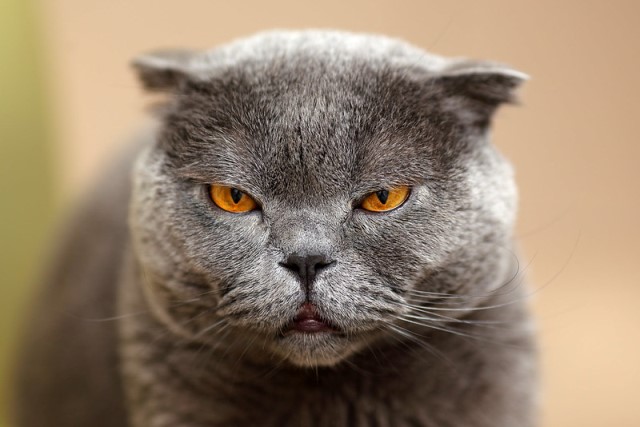
Meet the Scottish Fold: The Sweethearts with Folded Ears
When it comes to unique cat breeds, few are as instantly recognizable—or as irresistibly charming—as the Scottish Fold. With their signature folded ears, wide eyes, and calm personalities, these cats have captured the hearts of feline lovers around the world.
Whether you’re considering adopting one or just curious about the breed, here’s everything you need to know about the lovable and low-key Scottish Fold.
???? A Quick Look at the Breed
- Origin: Scotland, 1960s
- Distinct Feature: Folded ears that bend forward and downward
- Temperament: Gentle, calm, affectionate
- Lifespan: 11–15 years
- Coat Type: Short or long (known as Highland Fold for longhaired variety)
- Colors: Wide variety—solid, tabby, calico, bicolor, and more
???? The Story Behind the Folded Ears
The breed originated in Scotland in 1961 when a shepherd named William Ross noticed a white barn cat with oddly folded ears. He named her Susie, and her unique ear shape came from a natural genetic mutation. Breeding her offspring led to the Scottish Fold line we know today.
Those folded ears are caused by a dominant gene that affects cartilage throughout the body—not just in the ears. This trait gives the cat a distinctive “owl-like” appearance that is both adorable and dignified.
???? Personality & Temperament
Scottish Folds are beloved for their sweet and easygoing personalities. They’re known to be:
- Affectionate but not overly clingy
- Curious and intelligent
- Gentle with children and other pets
- Quiet, with soft meows and chirps
- Fans of lounging and people-watching
They often form strong bonds with their humans and enjoy cozy lap time or sitting quietly nearby. You might also catch them sitting in funny poses, like the “Buddha sit,” where they sit up with their legs stretched forward!
???? Grooming & Care
Scottish Folds are relatively low-maintenance, especially the short-haired variety. However, they do appreciate a little pampering:
- Brushing once or twice a week to reduce shedding
- Ear cleaning as needed (those folded ears can trap dirt)
- Regular nail trimming and dental care
- Playtime and gentle exercise to prevent weight gain
???? Health Considerations
While they are generally healthy, Scottish Folds carry a genetic risk for a condition called osteochondrodysplasia—a disorder that affects cartilage and bone development. This can lead to joint pain or arthritis, especially in cats with two copies of the folded ear gene.
To minimize health issues:
- Adopt from reputable breeders who screen for joint problems
- Monitor for signs of stiffness, limping, or discomfort
- Schedule regular vet checkups
Because of this, some countries have placed restrictions or ethical guidelines around Scottish Fold breeding.
Is a Scottish Fold Right for You?
If you’re looking for a gentle, affectionate companion who enjoys a peaceful household and low-key company, a Scottish Fold might be the perfect feline friend. They’re ideal for seniors, families, and individuals alike—especially those who appreciate quiet cuddles and unique charm.
Image Source: Scottish fold cat
